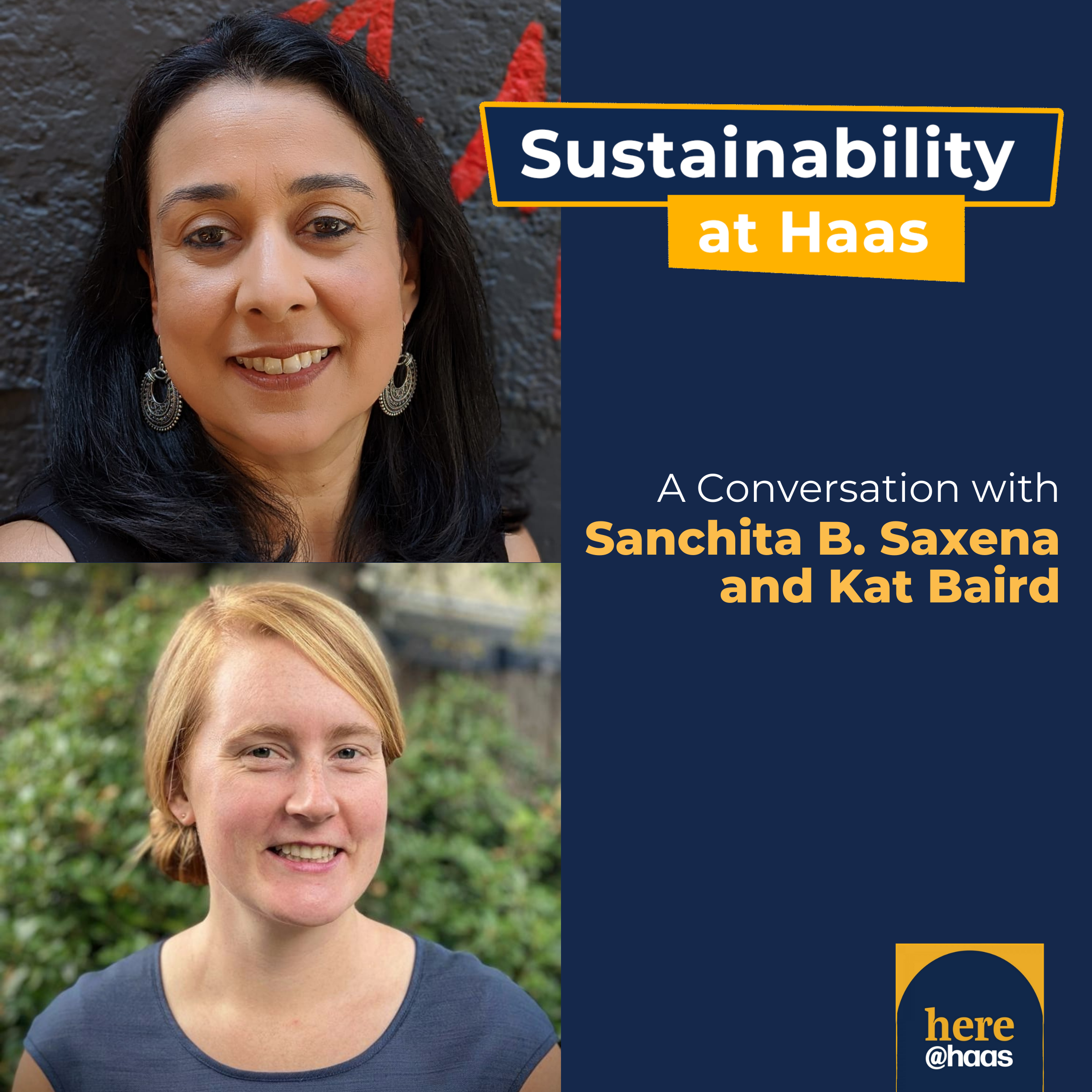Haas has launched the Michaels Graduate Certificate in Sustainable Business to empower new leaders to create the economic and social transition to a climate-resilient, low-carbon, and equitable future.
The Michaels Certificate in Sustainable Business will equip aspiring leaders to evaluate operational and strategic decisions using a sustainability lens.
In this episode, we’ll hear from Kat Baird, the Associate Director of Sustainability at UC Berkeley Haas School of Business who will break down the Michaels Graduate Certificate in Sustainable Business for us.
We get into why Haas decided to launch this certificate, what Michaels Certificate aims to achieve, and the basic requirements.
Then we move to focus on one of the eligible electives in the Michaels Certificate: Business, Labor, and Global Supply Chains, with Sanchita B. Saxena. She teaches that class and is the Executive Director at the Institute for South Asia Studies at UC Berkeley.
Sanchita will tell us more about this elective, three top takeaways that she wants students to walk away with after taking it, her background in the garment industry and what parts of that she brings to her class, and the role of business schools in sustainability.
Episode Quotes:
Why start the Michaels Graduate Certificate in Sustainable Business?: Kat
[00:03:27] – We want to make sure that whatever we’re doing, that every student who comes to Haas at minimum leaves with a basic understanding of how climate change, social and environmental sustainability, and environmental justice are a key part of being a business leader today. So that’s why we’re really working as broadly as we can to demonstrate and to integrate the fact that sustainability applies across all areas of business: Marketing, finance and investment, human resources, leadership.
A glimpse into some of the curriculum: Kat
[00:17:09] – As an elective, you could take Corporate Sustainability: Measuring and Reporting so that in the future, you would know how to share this information with your company or with your board. And then to finish it, you can have a hands-on learning experience where you take Clean Tech to Market to really work with renewable energy startups and create industry partnerships in the startup and in the energy industry for you as you move forward in your career.
A bit on Sanchita’s class Business, Labor, and Global Supply Chains: Sanchita
[00:33:26] – We look at examples of different initiatives, but we also look at the limitations and why they are not necessarily as effective as we would expect. And then we go into looking at other factors that may be important when analyzing labor abuses or trying to rectify labor abuses, that go beyond private sector monitoring, and we look at the role of technology.

